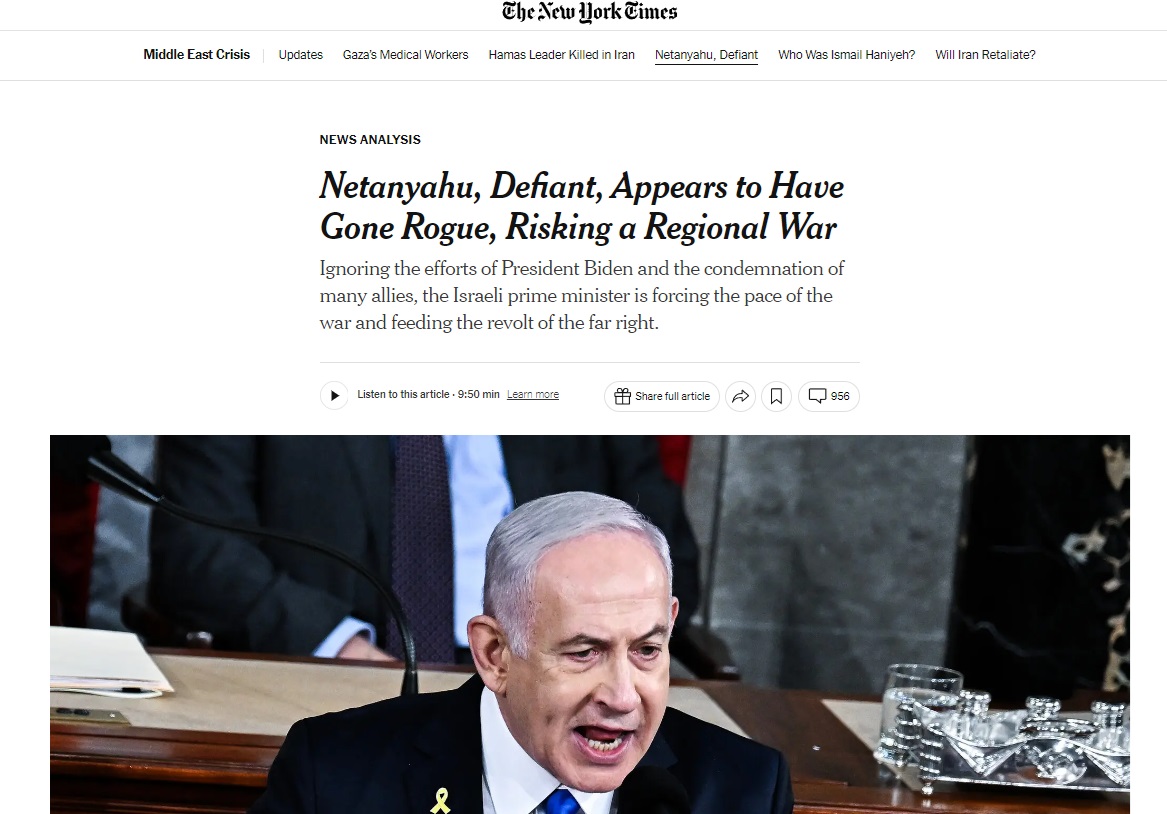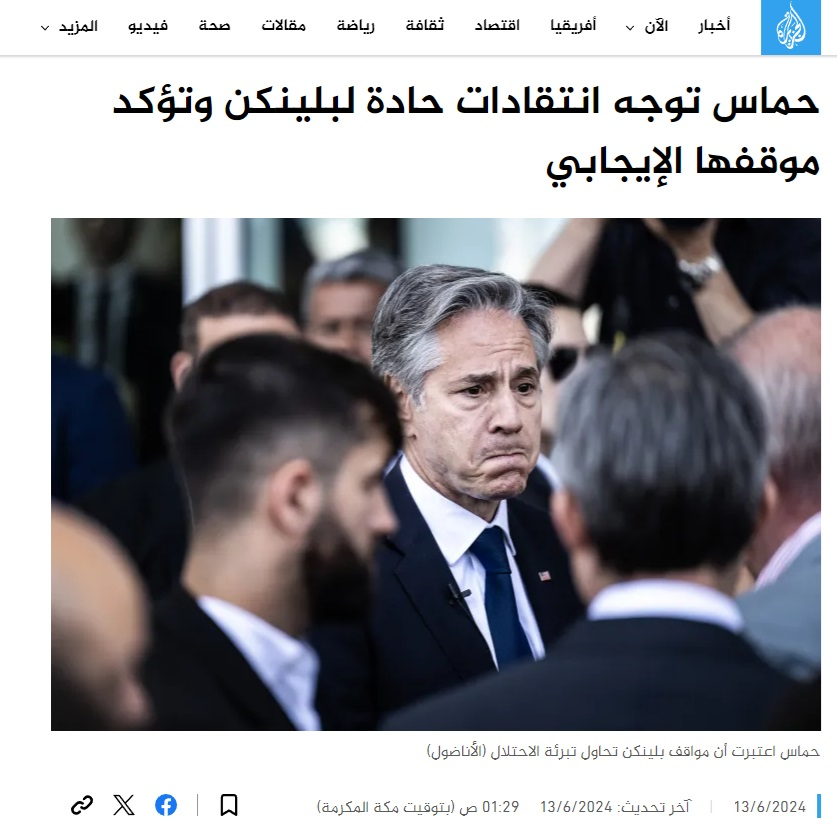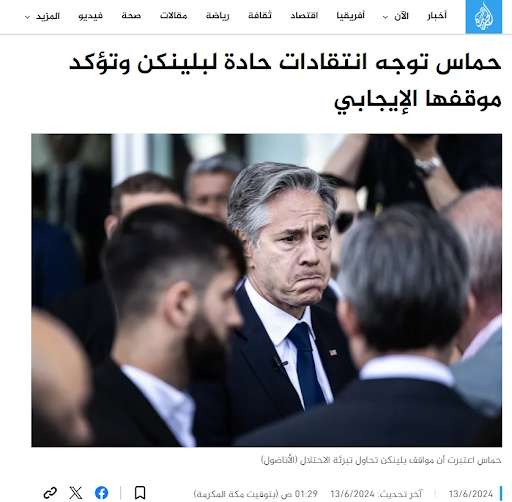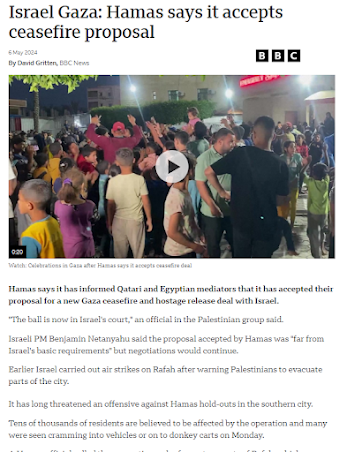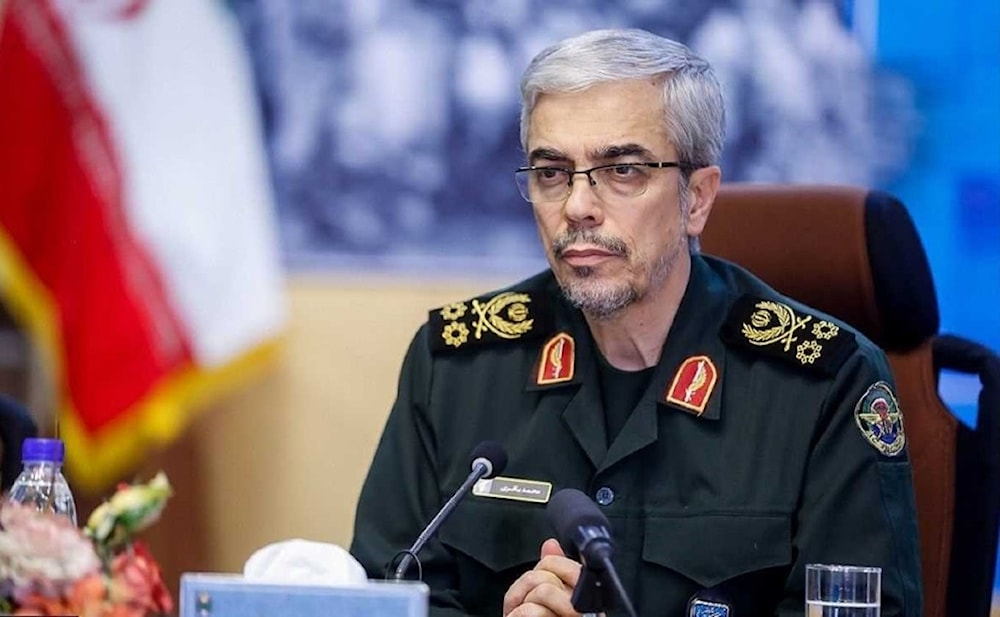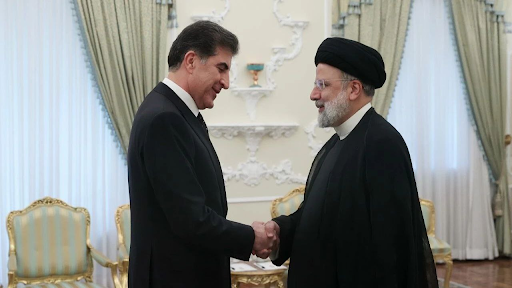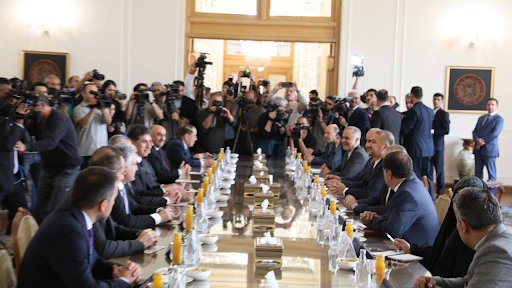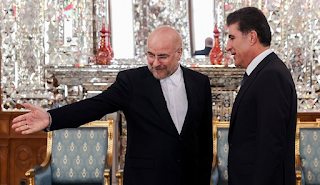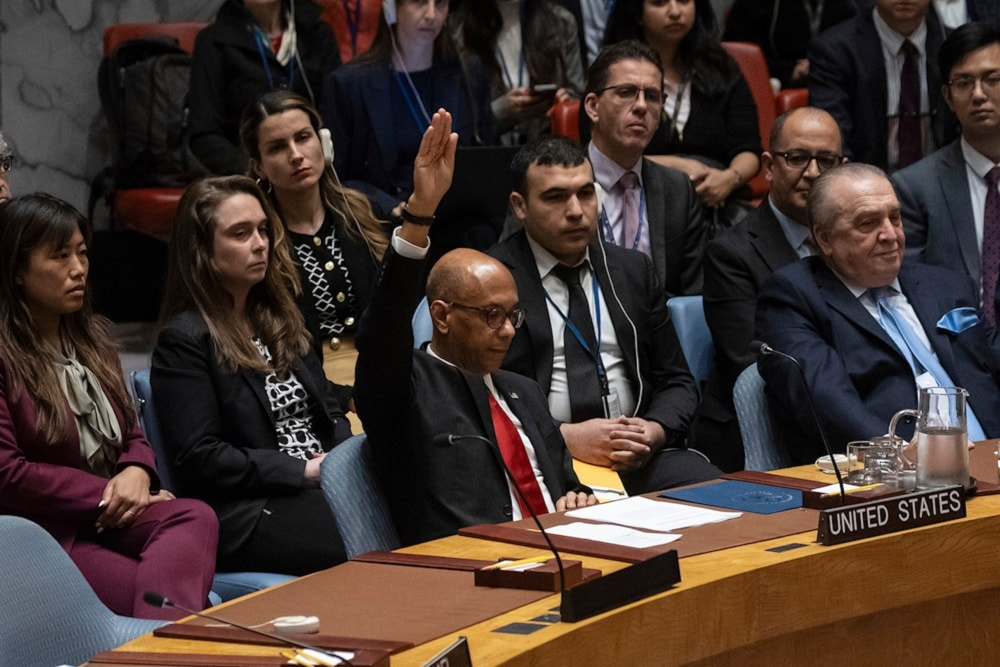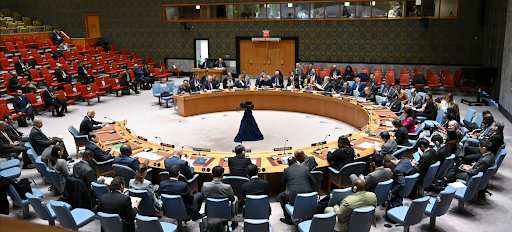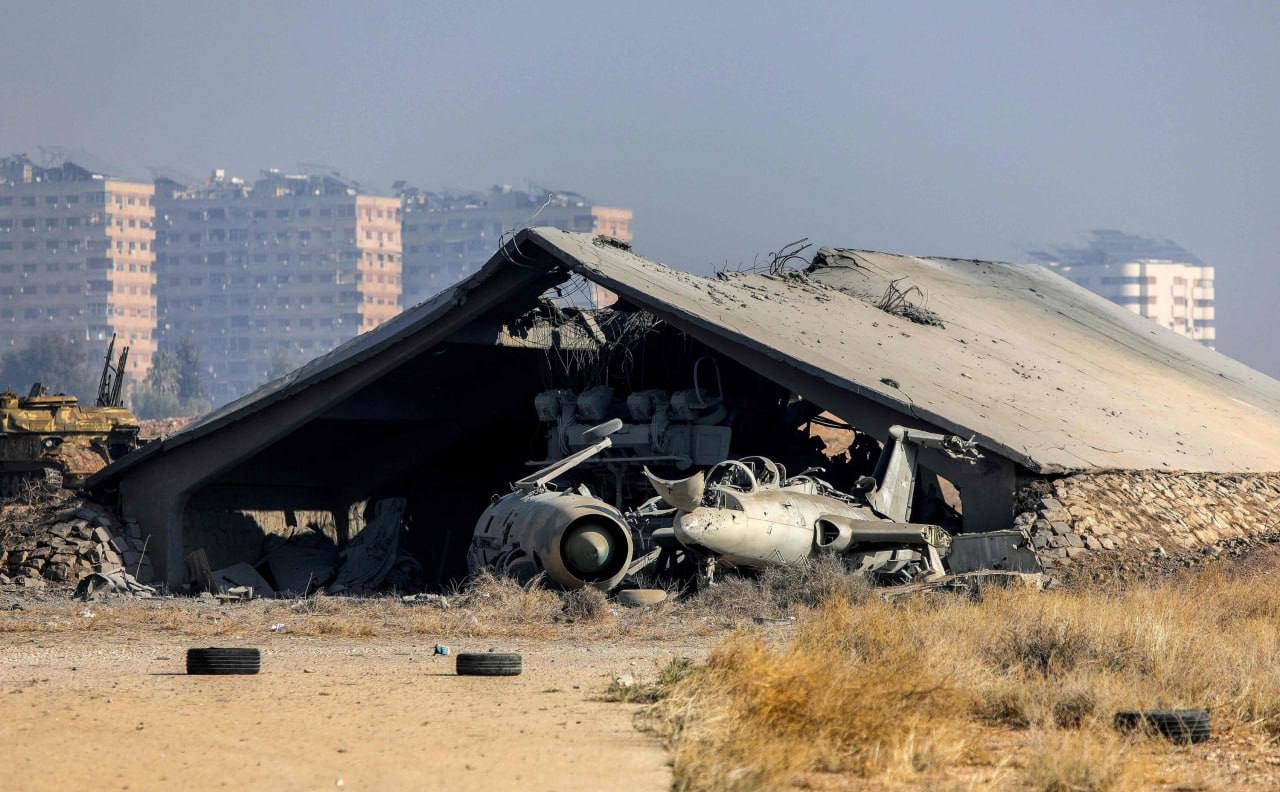
Media review: Is Syria on the verge of a being a failed state?
From the developments of the last few days alone, Syria seems to be on a path of being a failed state in a region that is very volatile. Here are the recent events and how the world is reacting to them according to media reports.
Israel announced on Tuesday the destruction of about 70%-80% of the capabilities of the Syrian army
According to Israel's military forces, about 350 fighter jets from the Israeli Air Force participated in the campaign, attacking about 320 targets throughout Syria.
It added that "a number of warplanes and helicopters, radars, surface-to-air missile batteries, ships, surface-to-surface missiles, rocket shells, weapons production sites, weapons depots, Scud missiles, cruise missiles, sea-to-sea missiles, drones, and others were destroyed."
The Israeli Army Radio reported on Tuesday that the air force "attacked 250 targets in Syria in recent days," in an attack it described as "one of the largest in our history."
The radio reported, citing a military source, that "the air force destroyed dozens of Syrian warplanes in its attacks."
The Syrian Observatory for Human Rights reported that the Israeli "army" "destroyed the most important military sites in Syria."
The observatory added that it "documented about 310 Israeli raids on Syrian territory since the fall of Bashar al-Assad's regime on Sunday," while journalists from Agence France-Presse in the capital reported that they heard explosions early Tuesday.
Agence France-Presse reported that the Scientific Research Center in Damascus, affiliated with the Syrian Ministry of Defense, which was targeted by Israeli raids on Monday evening, was completely destroyed.
In parallel with the air aggression, the Israeli armed forces occupied 9 villages in the southern countryside of Damascus, according to Israeli media.
The Israeli media said that "the army reached the vicinity of the town of Qatna in the Damascus countryside, 10 km (about 6 miles) from the neighborhoods of Damascus and 15 km (about 9 miles) from the city center, adding that "the army is present in the interior regions of Syria."
In the same context, the Syrian newspaper "Al-Watan" indicated today, Tuesday, that "Israeli army forces penetrated into the south of Damascus Governorate."
The reports stated that Israeli forces "took control of the town of Hina, which is about 31 miles from Damascus, reaching the outskirts of Khan al-Shih in the Qatna area, located opposite the Lebanese Rashaya area."
In the same context, Reuters quoted 3 security sources as saying that "the Israeli military incursion into Syria reached about 25 kilometers southwest of Damascus."
Reuters added that Israeli forces "reached Qatana, which is located 10 kilometers inside Syrian territory to the east of the buffer zone."
Arab rejection of Israel's seizure of buffer zone with Syria
Arab countries expressed their rejection, on Monday, of Israel's seizure of the buffer zone with Syria after announcing the collapse of the separation of forces agreement with Damascus following the fall of the regime of ousted President Bashar al-Assad.
This came in official statements issued by Qatar, Saudi Arabia, Kuwait, Jordan, Iraq and the Arab League, while the Israeli Army Radio said on Monday that army forces had penetrated the buffer zone with Syria by land, while continuing to carry out extensive air strikes with heavy bombs on sites in the area.
On Sunday, Israel announced the collapse of the 1974 separation of forces agreement with Syria, and the deployment of the Israeli army in the demilitarized buffer zone in the Syrian Golan Heights, most of which it has occupied since 1967.
The Israeli move came after Syrian opposition factions entered the capital Damascus and took control of it, with the withdrawal of regime forces from public institutions and streets, thus ending a 61-year era of Baath Party rule and 53 years of Assad family rule.
In a statement by the Ministry of Foreign Affairs, Qatar strongly condemned the Israeli occupation's seizure of the buffer zone with Syria and the adjacent leadership sites, and considered it a dangerous development and a blatant attack on Syria's sovereignty and unity and a flagrant violation of international law.
It warned that the policy of imposing a fait accompli pursued by the Israeli occupation, including its attempts to occupy Syrian lands, will lead the region to more violence and tension.
The Saudi Foreign Ministry said in a statement that the attacks carried out by the Israeli occupation government by seizing the buffer zone in the occupied Syrian Golan Heights and targeting Syrian lands confirm Israel's continued violation of the rules of international law and its determination to sabotage Syria's chances of restoring its security, stability and territorial integrity.
Kuwait also expressed in a statement by the Foreign Ministry its strong condemnation and denunciation of the Israeli occupation forces' occupation of the buffer zone on the Syrian border, and considered it a blatant violation of international laws and Security Council resolutions.
It stressed the importance of the international community assuming its responsibilities to put an end to the series of Israeli attacks on the countries of the region, and to hold accountable the perpetrators of these violations in order to preserve regional and international security and peace.
Jordanian Foreign Minister Ayman Safadi said in a speech before his country's parliament that Amman condemns Israel's entry into Syrian territory and its control over the buffer zone, and categorically rejects this aggression, and stresses the unity of Syria and the unity of its territories and cohesion.
The Iraqi Foreign Ministry also expressed in a statement its "condemnation of the Zionist entity's seizure of the buffer zone with Syria in the Golan and the lands adjacent to it," indicating that this measure represents a flagrant violation of international law and relevant international legitimacy resolutions.
The Arab League had expressed, in a statement on Sunday, its full condemnation of what the Israeli occupation seeks to achieve illegally, taking advantage of the developments in the internal situation in Syria, whether in terms of occupying additional lands in the Golan or considering the 1974 disengagement agreement expired.
UN keeps troops in Golan, criticizes Israel's entry into buffer zone
The United Nations confirmed on Monday that it will keep its forces in the buffer zone in the occupied Syrian Golan Heights, and said that Israel's entry into the area constitutes a violation of the 1974 disengagement agreement with Syria.
UN spokesman Stephane Dujarric said that the United Nations Disengagement Observer Force (UNDOF) informed the Israelis that these actions constitute a violation of the 1974 disengagement agreement.
He explained that the Israeli forces that entered the buffer zone are still deployed in 3 locations.
He stressed that "there should be no military forces or activities in the separation zone. Israel and Syria must continue to implement the provisions of the 1974 agreement and maintain stability in the Golan."
For his part, the spokesman for the international peacekeeping forces in the Golan, Nick Bernbach, said that these forces are still in their positions despite the Israeli army's control of the buffer zone.
He added that the peacekeeping forces will remain in their positions in the Golan as long as the Security Council does not adopt any change in their mandate.
For its part, the United States said that "Israel's incursion into the buffer zone in the Golan should be temporary."
Hayat Tahrir al-Sham leader: Syria will not engage in another war
Abu Mohammed al-Jolani, the leader of Hayat Tahrir al-Sham, which along with allied factions launched an offensive that toppled President Bashar al-Assad, said the Syrian people were "exhausted" by years of conflict and that the country would not see "another war".
"People are exhausted from war. So the country is not ready for another war, and it will not engage in another (war)," al-Jolani, who has begun using his real name Ahmed al-Sharaa, said in an interview with Britain's Sky News broadcast on Tuesday.
Two sources close to the Syrian opposition fighters told Reuters on Tuesday that the opposition leadership had ordered its fighters to withdraw from cities and to deploy units affiliated with Hayat Tahrir al-Sham from the police and internal security forces.
Hezbollah condemns occupation of lands in Syria: We hope it will stabilize and be in a position of rejecting its enemy "Israel"
Hezbollah stressed that the Israeli entity's occupation of more Syrian territories and its attack on military capabilities are "a dangerous aggression that must be strongly condemned," holding the Security Council, the international community, and Arab and Islamic countries "responsible for rejecting and ending it, and protecting the Syrian people at a sensitive and pivotal stage in its history."
In a statement issued on Tuesday evening, Hezbollah expressed hope that "Syria will settle on the choices of its people, achieve its renaissance, and be in a position of rejecting the Israeli occupation, preventing foreign interference in its affairs."
In the same context, Hezbollah stressed that what is happening in Syria, on the popular and political levels, and the internal and external political choices that will result from it, are "the exclusive right of the Syrian people, independent of any external influences and pressures."
While he stressed that he would remain "a supporter of Syria and its people in their right to build their future and confront their enemy, the Israeli entity," he urged taking all steps that would prevent the occupying entity from achieving its goals, and not remaining silent or watching the Israeli aggression against Syria and its people.
In this context, Hezbollah pointed out that the complete silence, Arab, Islamic and international, towards the aggression on Syria, with unlimited American support, and the failure to take practical measures to confront this aggression and support the Palestinian people and their legitimate rights, led to "Zionist excesses and encroachment on the countries of the region."
He also pointed out that "it has always warned of Israeli ambitions in the entire region, and resisted them to prevent the occupation from achieving its goals, and reiterated that the aggression on Gaza is a war of extermination and a starting point to change the face of the region and end the Palestinian cause."
It is noteworthy that Hezbollah previously confirmed that the continuing crimes committed by the Israeli occupation on Syrian territory, whether through occupying more lands in the Golan Heights, or striking and destroying the defensive capabilities of the Syrian state, "represent blatant aggression and a blatant violation of the sovereignty of the state and people in Syria."
Syria's UN envoy: Our mission continues its work... and "Israel" exploits the change of power
Syria's permanent representative to the United Nations, Qusay al-Dahhak, said that Damascus calls on the UN Security Council and the UN Secretary-General to prevent "Israel" from exploiting the change of power in the country.
This came during a press conference at the United Nations on Monday, commenting on the Israeli aggression against Syria, saying: "On instructions from the current government, Syria has appealed to the Security Council and the Secretary-General of the United Nations, demanding that they stop the Israeli aggression."
He continued: "The Syrian Permanent Mission to the United Nations continues its work as part of the state institutions in the country, and we represent the interests of the Syrian people, and we will continue to do so."
He added: "We are working with the current Prime Minister and Minister of Foreign Affairs, and we are waiting for a new government."
Washington: We have interests in Syria... and our forces will remain
The United States announced today that its forces will remain in Syria, while it and European countries are still studying how to deal with the armed factions that overthrew the Assad regime, and will discuss this at the upcoming G7 meeting.
US Deputy National Security Advisor John Fine confirmed during an interview at the Reuters Next conference in New York that "Washington has major interests in Syria and will express them to the relevant parties as required." Noting that US forces in Syria "are there for an important reason and are not a bargaining chip," he announced in response to a question that they will remain in Syria.
He pointed out that "the countries on the borders with Syria have justified concerns about developments," considering that "there are major risks associated with what happened in Syria as well as opportunities." Regarding communication with "Hay'at Tahrir al-Sham," Fine announced that Washington "is still working on how to deal with the groups that overthrew Assad," explaining that "the classification of these groups will be based on what they do, not what they say they will do."
Earlier today, the European Union's foreign policy chief, Kaya Kallas, commented on the latest developments in Syria, saying that although "the initial signals are good," "new people are judged by their actions," noting "legitimate concerns about the risks of sectarian violence in Syria and the resurgence of extremism in the country." She also considered that "the fall of Assad represents a blow to Russian President Vladimir Putin and Iran."
In this context, the Group of Seven will discuss the latest developments in Syria next Friday, in a virtual meeting.
According to Agence France-Presse, the meeting, which was called before the fall of the Assad regime, was scheduled to be an official handover to Canada, which will assume the presidency of the group, but the meeting will address "other international crises, from Ukraine to the Middle East," including "the unrest in Syria."



